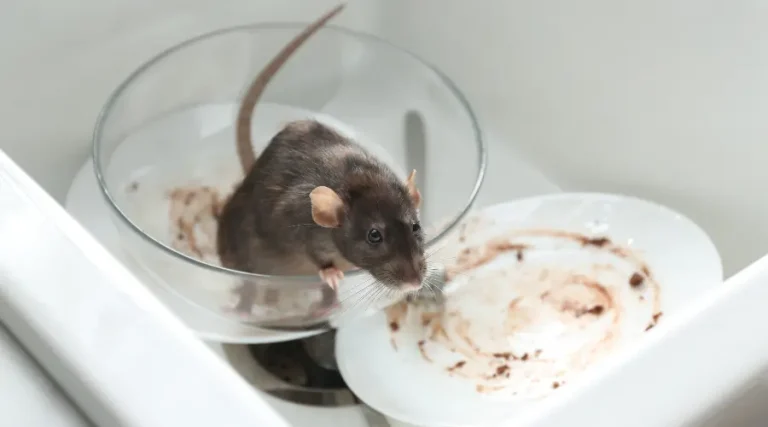Protecting your beloved pets becomes a top priority when pests invade your home. Learn how to tackle pest problems effectively while keeping your furry friends safe from harm with expert tips and pet-safe solutions.
Key Takeaways
- What is a pet pest? Pests like fleas, ticks, ants, and rodents can harm pets and homes.
- Pet-safe pest control: Choose products and methods that eliminate pests without exposing pets to harmful chemicals.
- 10 safety tips include securing food bowls, using natural repellents, and choosing professional pest control services experienced with pets.
- FAQ section: Covers common questions about balancing effective pest control with pet safety.
What Is a Pet Pest?
A pet pest is any pest that directly affects your pets or their environment. Common examples include:
- Fleas and ticks: These parasites can latch onto your pets, causing itching, allergic reactions, or transmitting diseases like Lyme.
- Ants: Fire ants can sting your pets, leading to discomfort or allergic reactions.
- Rodents: Mice and rats spread diseases and may attract secondary pests like fleas.
- Cockroaches and spiders may not target pets directly but can create unsanitary conditions.
- Mosquitoes can transmit heartworm to dogs and other diseases to pets.
- Understanding the types of pests that affect your pets is the first step toward protecting them.
Keeping Your Animals Safe While Dealing With Pests
Effectively managing pest problems without endangering your pets involves a blend of preventive measures, careful product selection, and safe practices.
Pet-Safe Pest Control Products and Methods
1. Natural Solutions: Products like diatomaceous earth, essential oil sprays, or vinegar solutions can deter pests without chemical risks.
2. Bait Stations: Use enclosed bait stations to avoid accidental pet ingestion.
3. Non-Toxic Sprays: Look for EPA-approved or pet-safe pesticides marked as non-toxic for animals.
4. Barriers: Seal entry points with caulking or steel wool to keep pests out without relying on chemicals.
5. Professional Pest Control Services: Work with pest control companies specializing in pet-safe methods. Mention your pets to ensure they tailor their approach accordingly.
10 Pest Control Safety Tips for Pets
1. Read Labels Carefully: Always check the label for warnings about pets. Avoid products that contain highly toxic chemicals like pyrethroids or organophosphates.
2. Secure Pet Food: Pests often target pet food. Store it in sealed containers and clean bowls regularly.
3. Avoid Contaminating Water Bowls: Remove or cover water bowls before applying sprays or powders.
4. Choose Time-Release Traps: For rodent control, use traps designed to eliminate pests without risking pet exposure.
5. Monitor Outdoor Areas: Fleas, ticks, and other pests thrive in grass and wooded areas. Keep your yard trimmed and apply pet-safe yard sprays.
6. Isolate Pets During Treatment: Keep pets away from treated areas for the recommended time.
7. Use Natural Deterrents: Peppermint oil, citrus sprays, and other natural repellents can deter pests without harming your pets.
8. Work With Professionals: Consult pest control experts familiar with pet-safe solutions to create a treatment plan.
9. Educate Yourself About Pests: Knowing the habits of pests in your area can help you use prevention rather than reaction.
10. Regular Vet Visits: Protect your pet against pests through vet-recommended treatments, such as tick and flea preventatives.
FAQ: Addressing Common Concerns
Q: How can I manage pest control while protecting my pets?
A: Choose pet-safe pest control methods like natural repellents or enclosed bait traps, and always keep pets away from treated areas until they’re safe. Consulting a professional pest control service ensures safety for your pets and effectiveness against pests.
Q: Are essential oils safe for pest control around pets?
Some essential oils, like peppermint or lemon, are safe in small amounts. However, oils like tea tree or eucalyptus can be toxic. Always dilute oils and keep them out of reach of pets.
Q: What signs suggest my pet is affected by pests?
Excessive scratching, skin irritations, loss of fur, or lethargy can indicate pest problems. Consult a vet for a proper diagnosis.
Q: Should I hire a professional for pest control?
Professional pest control services can ensure safe, effective treatments tailored to homes with pets.
Conclusion
Protecting your pets doesn’t mean compromising on pest control. By using pet-safe products, taking preventive measures, and consulting professionals, you can maintain a pest-free home while ensuring the health and safety of your furry companions. Let Pest Control Services provide expert care for your home and pets, ensuring peace of mind and a healthier living space.
At Carlsbad Pest Control, we specialize in reliable pest management tailored to your needs. Committed to excellence, we deliver professional, customer-focused service to keep your home or business pest-free. We welcome your inquiries and are proud to serve the Carlsbad community with effective solutions and exceptional care.

